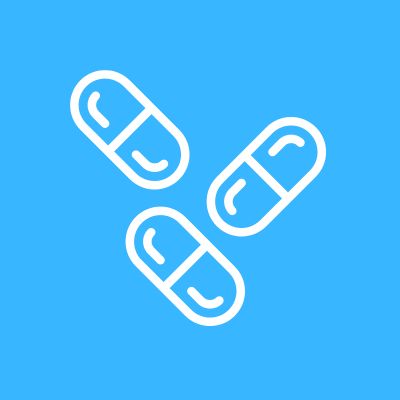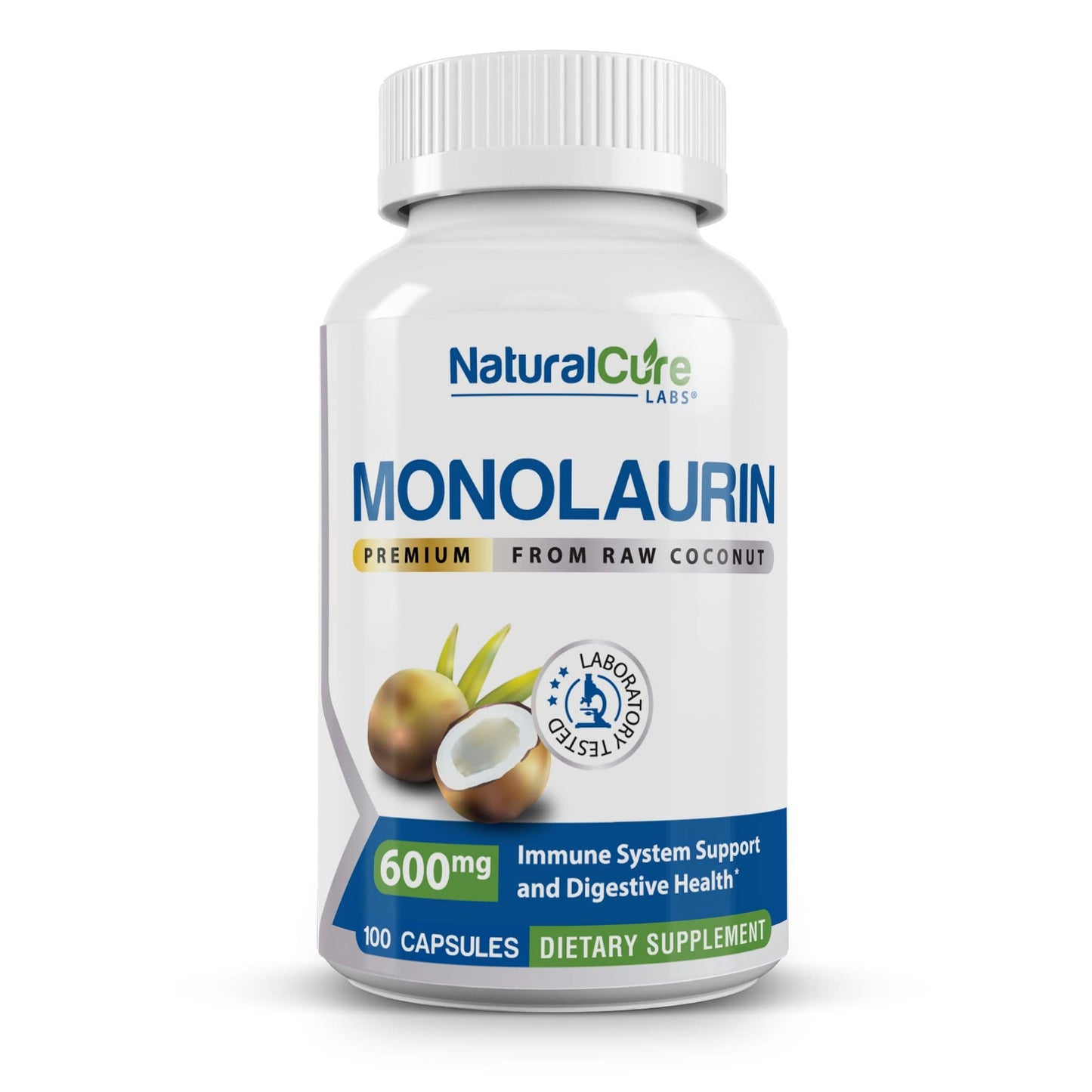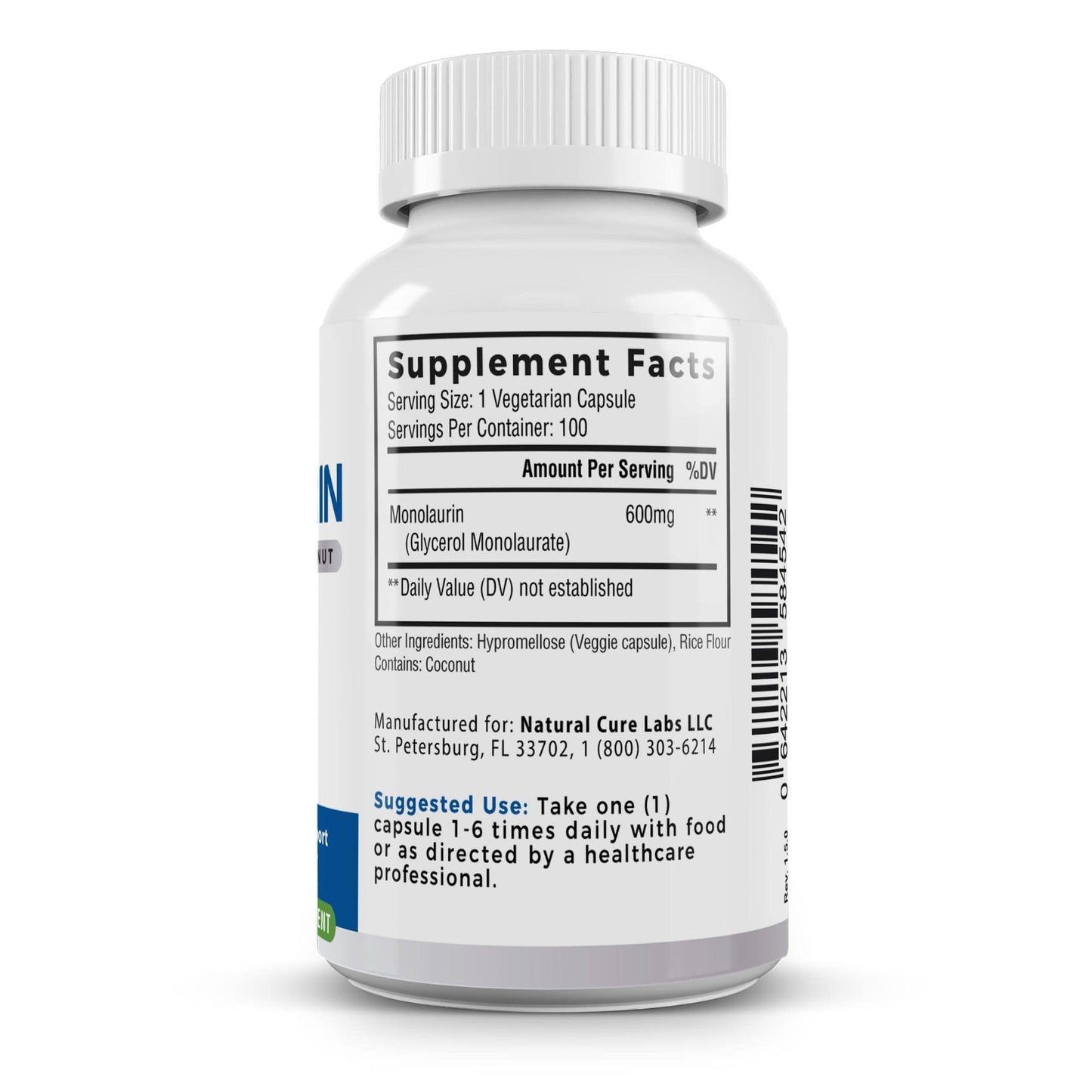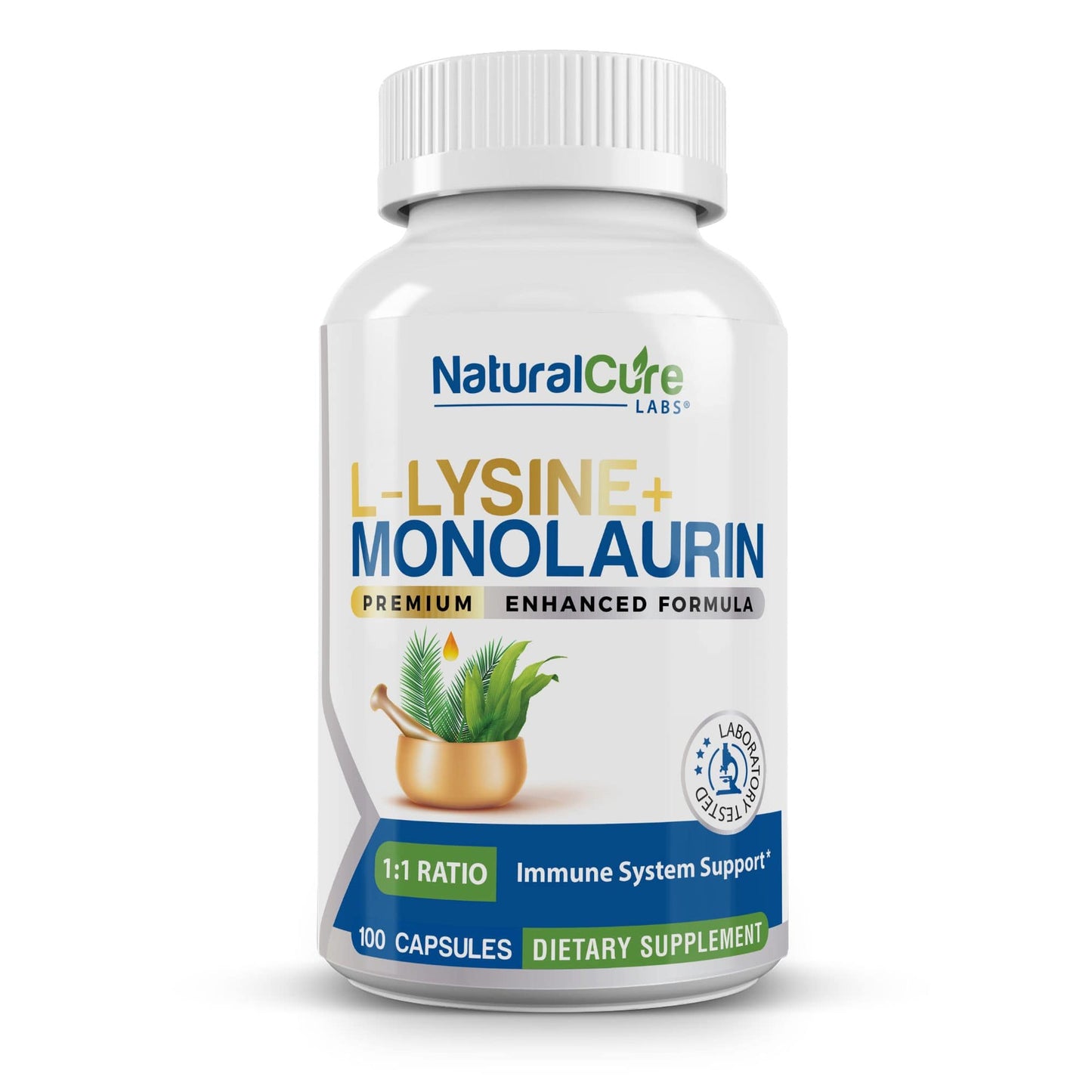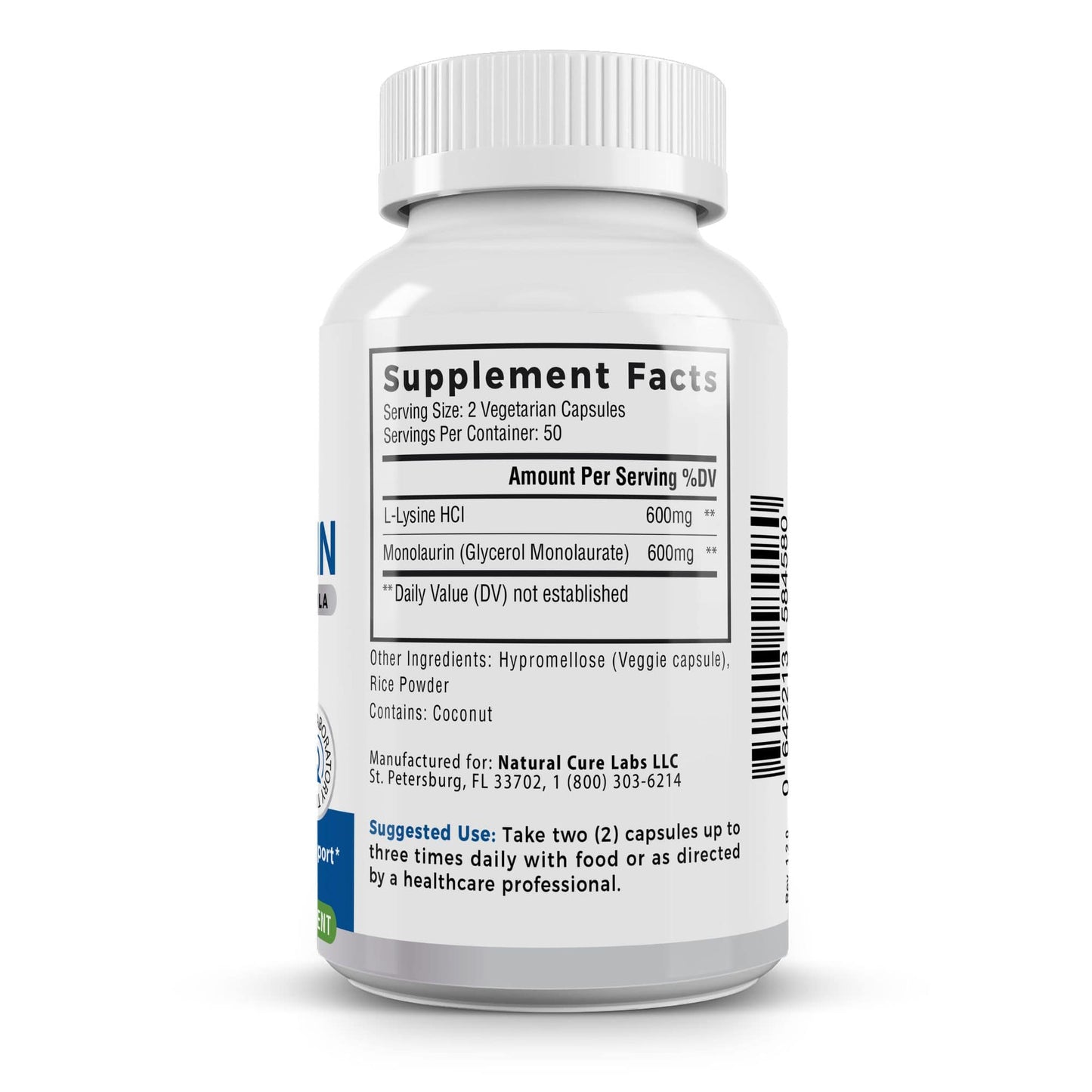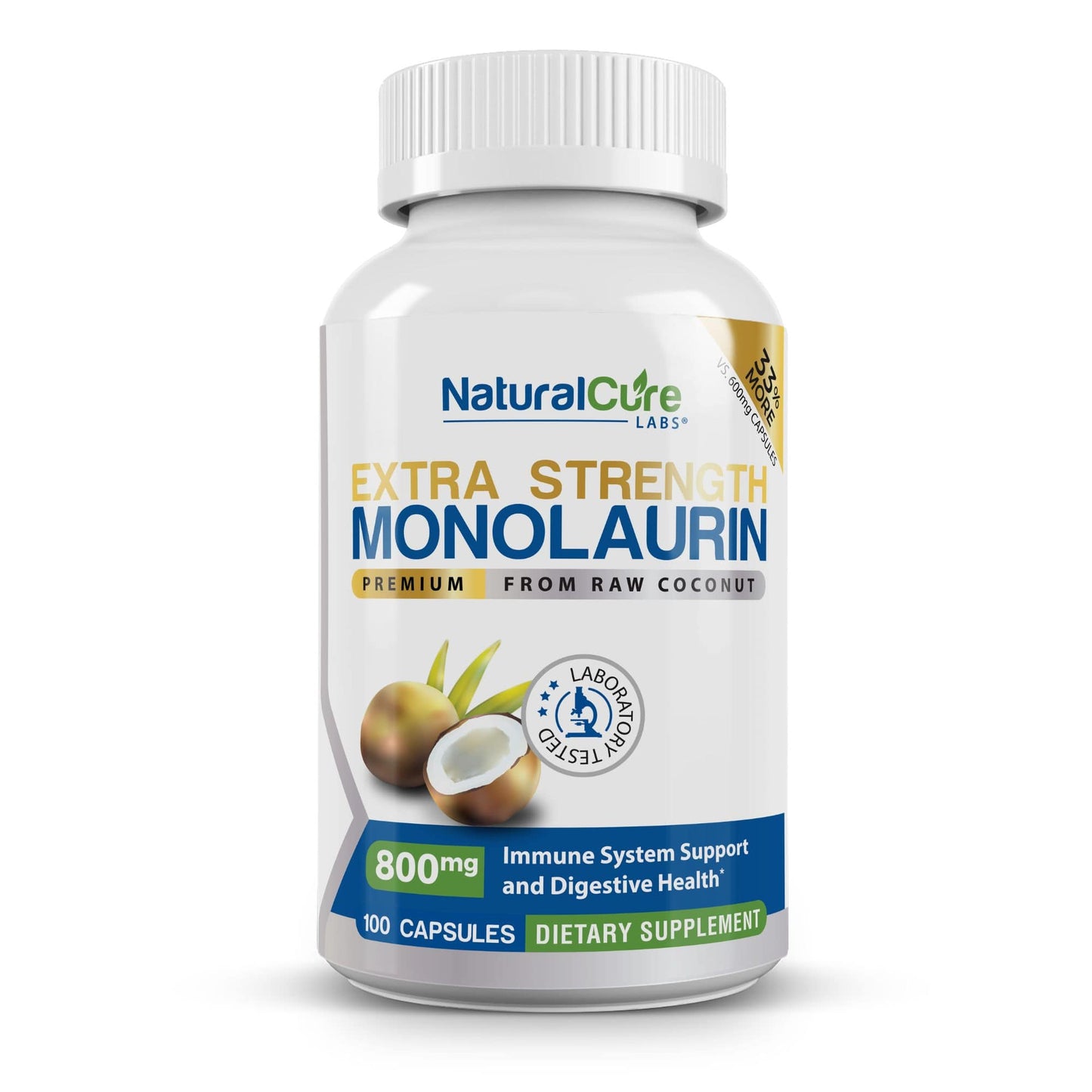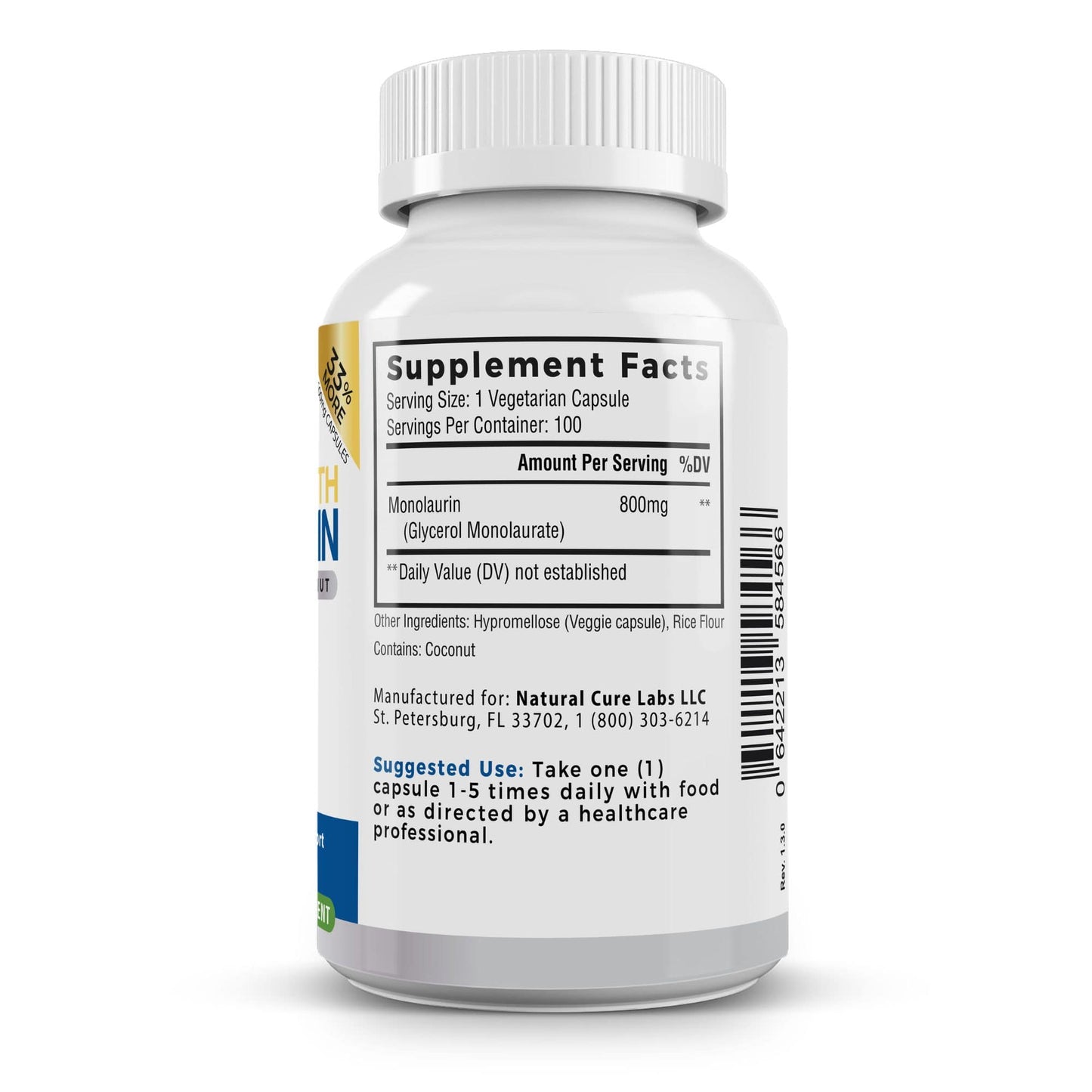Monolaurin is derived from lauric acid, which is present in coconut oil and breast milk. Monolaurin may help support immune, gut, and skin health.‡
Monolaurin Overview
Monolaurin, a monoglyceride of lauric acid, is a medium-chain fatty acid known for its role in supporting a healthy immune response.‡ This compound is primarily sourced from coconut oil and palm kernel oil, and the human body also converts lauric acid into monolaurin, but the conversion rate is not fully understood.‡
Research suggests that monolaurin is able to support and maintain a healthy immune response.‡
Monolaurin may also support gut health through maintaining microbial balance.‡
The Potential of Monolaurin
The potential benefits of monolaurin include:
- Immune Support: Monolaurin may help support and maintain overall health and wellness by promoting a healthy immune response.‡ Some people take monolaurin daily like a multivitamin.
- Skin Health: Monolaurin may help promote skin health when applied topically or taken orally.‡
- Gut Health: Lauric acid and its derivatives, including monolaurin, may contribute to a healthy digestive system by promoting balanced microbial environment in the gut.‡
Monolaurin is not a nutrient or an herb but a naturally occurring compound that may offer health benefits when used appropriately.‡
Sources of Monolaurin
Natural sources of monolaurin are limited, but it can be found in in coconut and palm kernel oils and in human breast milk. For higher concentrations, monolaurin is available in dietary supplement form.
Products with Monolaurin
References and Citations
- Kabara, J.J., Swieczkowski, D.M., Conley, A.J., & Truant, J.P. (1972). Fatty acids and derivatives as antimicrobial agents. Antimicrobial Agents and Chemotherapy, 2(1), 23-28.
- Projan, S.J., Brown-Skrobot, S., Schlievert, P.M., Vandenesch, F., & Novick, R.P. (1994). Glycerol monolaurate inhibits the production of beta-lactamase, toxic shock toxin-1, and other staphylococcal exoproteins by interfering with signal transduction. Journal of Bacteriology, 176(14), 4204-4209.
- Lieberman, S., Enig, M.G., & Preuss, H.G. (2006). A review of monolaurin and lauric acid: Natural virucidal and bactericidal agents. Alternative and Complementary Therapies, 12(6), 310-314.
- Bergsson, G., Arnfinnsson, J., Steingrímsson, Ó., & Thormar, H. (2001). Killing of Gram-positive cocci by fatty acids and monoglycerides. APMIS : acta pathologica, microbiologica, et immunologica Scandinavica, 109(10), 670-678.
‡ These statements have not been evaluated by the Food and Drug Administration. This product is not intended to diagnose, treat, cure, or prevent any disease.

